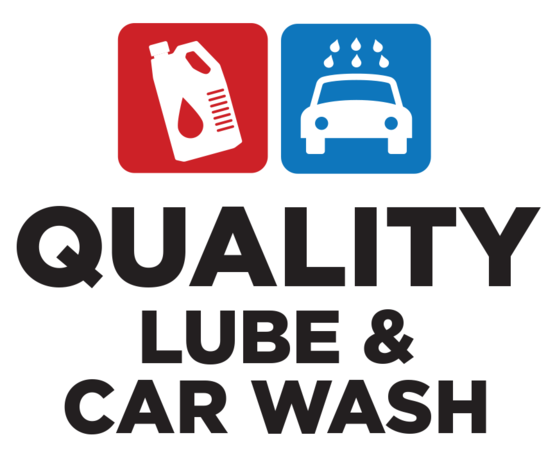This page provides answers to some of the most frequently asked questions about vehicle repair and service. We've thrown in some of our favorite tips and recommendations, too. Please call us or consult our Contact Us page for answers to your specific questions. We are happy to assist you!
Vehicle Maintenance
-
What are the consequences of postponing maintenance?
Many parts on your vehicle are interrelated. Ignoring maintenance can lead to trouble: specific parts, or an entire system, can fail. Neglecting even simple routine maintenance, such as changing the oil or checking the coolant, can lead to poor fuel economy, unreliability, or costly breakdowns. It also may invalidate your warranty. Properly maintaining your vehicle is less expensive than repairs from negligence.
-
Why does my vehicle's maintenance schedule recommend so many fuel system services?
Modern engines have long abandoned carburetion with its many parts destined for failure in favor of simple and direct electronic injection of fuel. No longer are we shackled with the necessity of constant adjustment or repair. A properly maintained fuel delivery system today offers much improved reliability and efficiency than those systems of old.
Millions of cars today run at a level of efficiency considerably reduced, due to the high concentration of carbon deposits accumulated in the fuel injection system, intake valves, combustion chambers, oxygen sensor and catalytic converter. Carbon build-up clogs fuel filters, reduces fuel flow, distorts fuel spray patterns, limits fuel automation and decreases combustion efficiency.
Carbon build-up gradually robs your vehicle of performance and fuel economy, and may cause numerous problems such as engine malfunction, high emissions, excessive fuel consumption, loss of performance, rough idling and hard starts. Simply infusing an additive into a gas tank will not adequately decarbonizes injectors, cylinder heads, valves, intake plenums, exhaust emission sensors, and other critical components.
-
What are all of the chemicals and fluid flushes for? Are they really necessary?
Protecting the vital wear points of your vehicle with quality lubricants will vastly improve service life and will provide optimum efficiency. Today’s properly maintained vehicles with 100,000 miles no longer consume oil and break with high frequency. Chemistry has played an important role. The right chemicals can restore the ph balance in radiators so that acidity will not degrade hoses and internal metals in radiators and coolers. Other chemicals such as transmission flush chemicals along with pulse flush equipment rinse the oxidation from the valves and other internal workings of transmissions.
-
What is the difference between maintenance and safety?
Maintenance is done to prevent any future problems from occurring to the vehicle. Safety is to prevent any incident that would cause damage to the vehicle, to you or to the driver who is driving next to you.
Vehicle Fluids
-
I see a fluid leak under my car, what is it?
You can identify fluids by their color and consistency:
• Yellowish green, pastel blue or florescent orange colors indicate an overheated engine or an antifreeze leak caused by a bad hose, water pump or leaking radiator.
• A dark brown or black oily fluid means the engine is leaking oil. A bad seal or gasket could cause the leak.
• A red oily spot indicates a transmission or power-steering fluid leak.
A puddle of clear water usually is no problem. It may be normal condensation from your vehicle's air conditioner.
-
I have a leak under my car. How can I tell what is leaking?
The coloring of the liquid identifies the type of liquid. Coolant Fluid is orange or green, Engine fluid is Brown or Black, Transmission Fluid is Red or Pink, Power Steering Fluid is Light Brown, Differential Fluid- Brown. depending on the leak it could mean trouble, don't wait until it's too late!
Vehicle Smells & Sounds
-
I smell something in /around my car, what could it be?
• The smell of burned toast - a light, sharp odor - often signals an electrical short and burning insulation. To be safe, try not to drive the vehicle until the problem is diagnosed.
• The smell of rotten eggs - a continuous burning-sulfur smell - usually indicates a problem in the catalytic converter or other emission control devices. Don't delay diagnosis and repair. • A thick acrid odor usually means burning oil. Look for sign of a leak.
• The smell of gasoline vapors after a failed start may mean you have flooded the engine. Wait a few minutes before trying again. If the odor persists, chances are there's a leak in the fuel system - a potentially dangerous problem that needs immediate attention.
• Burring resin or an acrid chemical odor may signal overheated brakes or clutch. Check the parking brake. Stop and allow the brakes to cool after repeated hard braking on mountain roads. Light smoke coming from a wheel indicates a stuck brake. The vehicle should be towed for repair.
A sweet, steamy odor indicates a coolant leak. If the temperature gauge or warning light does not indicate overheating, drive carefully to the nearest service station, keeping an eye on your gauges. If the odor is accompanied by a hot, metallic scent and steam-from under the hood, your engine has overheated. Pull over immediately. Continued driving could cause severe engine damage. The vehicle should be towed for repair.
-
My car is making a terrible sound, what information will help?
Squeaks, squeals, rattles, rumbles, and other sounds provide valuable clues about problems and maintenance needs. Here are some common noises and their definitions.
Squeal - A shrill, sharp noise, usually related to engine speed.
Click - A slight sharp noise, related to either engine speed or vehicle speed.
Screech - A high-pitched, piercing metallic sound; usually occurs while the vehicle is in motion.
Rumble - a low-pitched rhythmic sound.
Ping - A high-pitched metallic tapping sound, related to engine speed.
Heavy Knock - A rhythmic pounding sound..
Clunk - A random thumping sound.
The more details you can provide us, the better chance of locating the problem quickly. Does the noise occur when the engine is cold or warm? Hot or cold outside, rainy or dry? Does the noise occur while driving or only when parked? These clues help the technician diagnose your problems faster, saving you time and money!
-
I hear an intermittent noise from the front of my car. Do I need to worry about it?
Every noise should be checked by a qualified technician. Use you best judgment, if it sounds bad, get it checked right away. Quick action on a problem can many times save big dollars.
Oil Change
-
How often should I change my oil?
Most car manufacturers say to change your oil every 7,500 miles unless you drive in severe conditions. Severe conditions are defined as dirty or dusty roads, extremely hot or cold climates, a lot of stop and go driving, taking long trips or if you tow a trailer. If you answer yes to any of the severe driving conditions, your vehicle falls into the severe conditions category, or the 3,000 mile oil change interval.
-
When should I get my oil changed?
You should get your oil changed every 3000 miles or as recommended in your vehicle’s owner’s manual.
-
What is that milky brown engine oil?
Milky brown engine oil is an indication of coolant in the oil. This can be caused by a blown head gasket (other gasket), a failed transmission cooler, or cracked casings. This condition is very serious and needs to be checked by a professional technician quickly.
-
What is synthetic motor oil?
Synthetic motor oils can be a good choice for high output, turbocharged or supercharged engines, vehicles that are used for towing (especially during hot weather), or vehicles that are operated in extremely cold or hot climates.
Synthetic motor oils, though several times more expensive than mineral-based motor oils, can improve fuel economy and provide longer intervals between changes. They also provide instant lubrication on start-up.
Cabin Air Filters
-
What is a Cabin Air Filter?
Cabin air filters filter the air that comes from the outside of a vehicle into the passenger compartment. They were originally designed to remove solid contaminants like dust and soot from circulating inside the vehicle. These filters can now also absorb gases and odors. Cabin air filters may also be known as passenger compartment filters, pollen filters, or dust filters.
-
Why are Cabin Air Filters important?
Air quality is becoming a major concern for many people - outdoors, in our homes, and now even in our automobiles. An estimated 50 million Americans suffer from hay fever and other allergy-related problems.







